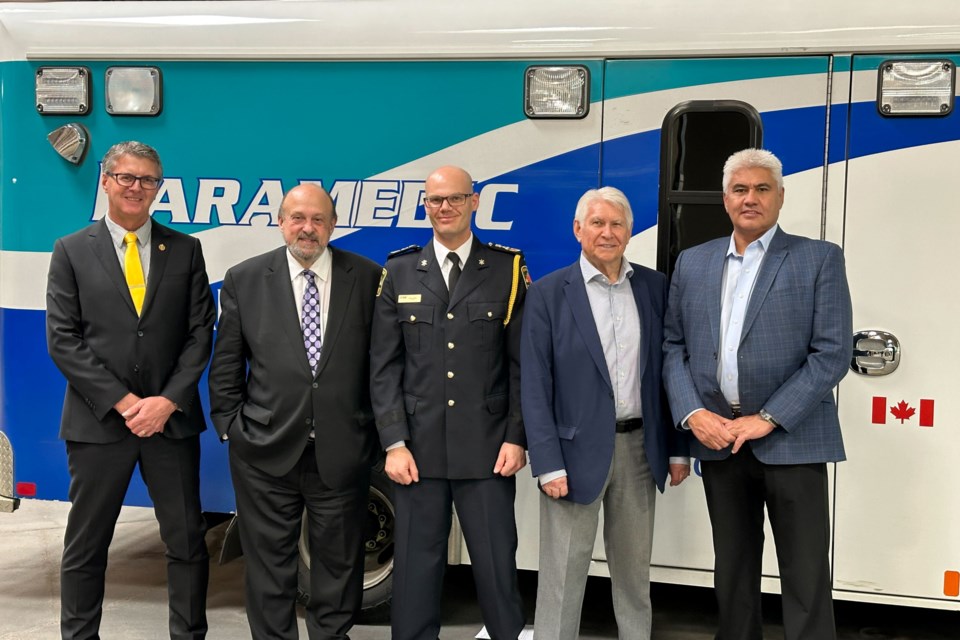THUNDER BAY – The city’s emergency services will soon have another team joining their ranks.
The Superior North Specialized Treatment and Alternative Responders, or STAR team, will be launching this year with the intent of reducing load on police and emergency medical services while also giving people experiencing homelessness or addictions crisis a new way to get the supports they need.
The STAR team is being funded by a $2.7 million investment over three years through the province’s Addictions Recovery Fund.
Michael Tibollo, associate minister of mental health and addictions for Ontario, said the plan for the team came from local sources to help ensure the emergency room remains reserved for patients who actually require it.
“It was not created by bureaucrats at Queens Park – where it was created was right here in Thunder Bay at a round table that we held with around 40 different service providers,” he said.
“We listened to what the needs were in Thunder Bay. We’re going to address the issues in Thunder Bay with local solutions that are client centred, that are holistic, that are going to meet the person where they are. We’re going to ensure that they have that continuum of care in the community.”
Up to 24 per cent of calls made to Superior North EMS are mental health and addictions related, according to Shane Muir, chief of Superior North EMS.
Muir said this new program will relieve some of the strain on local first responders.
“Many of those [calls] are low acuity in nature - meaning that they don’t need emergency department care, they don’t need a rapid transport with lights and sirens, and we can effectively handle those call types with a different approach to services,” he said.
“With STAR we’ll be able to use an interdisciplinary team, taking all that knowledge paramedics have gained from being on the streets, what they’ve learned in school, and pairing that with a mental health professional, an Indigenous liaison to provide appropriate care and make it a low-barrier access.”
Some of the services that will be provided by the STAR team include on-scene interventions, de-escalations and emotional support to help reduce violence, along with connections to mental health services, primary care and community-based support programs.
There is no set start date for the new team but they can be expected to launch later this year.
